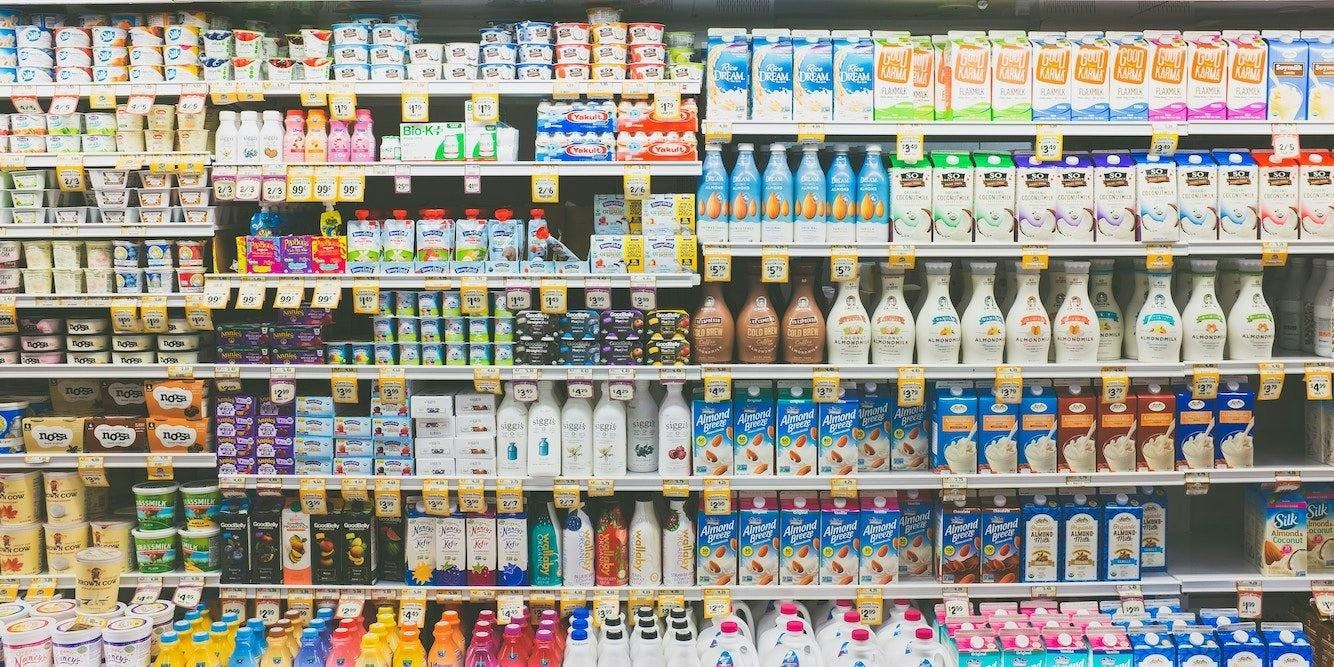
4 ways AI is disrupting CPGs/FMCGs (in a good way)
Stocking products, having promotions, and choosing the right product combinations is changing and getting FMCGs a new competitive advantage.
—
The number of variables that play into correctly stocking a vending machine or convenience store may come as a shock to someone outside of the industry, but those who work with FMCGs (fast-moving consumer goods such as Unilever, Procter & Gamble’s, Coca-Cola, Mars) know that stocking their products in a way that maximises revenue is no easy task. FMCGs are found pretty much everywhere – universities, office buildings, stadiums, malls, metros – and offer a wide array of different products, so the options are endless when it comes to picking out the right combination of goods to sell at the right price, in the right location. Even if you manage to find the “perfect” pairing of products, you are still caught up in the practical challenges of correctly stocking items at the right place, successfully managing different categories of products, and making sure you offer promotions at the most profitable times.
The human brain is great at reading emotion, persuasion, and analysis, but it isn’t so great at dealing with infinite options, so the process of setting up and managing your FMCG products can perplex even the most experienced industry leaders. This is why the fact that new technologies are making their way into the FMCG industries – particularly with the use of FMCG artificial intelligence (AI) and FMCG advanced mathematics – is so exciting.
AI and advanced mathematics are allowing FMCG/S distributors to control their product selection and stock processes like never before. Here are four of the major ways this is happening.
#1. AI can go beyond standard market segmentation (e.g., locations, seasonality, demographics, etc.) developed by “human constructs”
Personalisation is making its way into mainstream marketing, and customers are getting used to having their personal needs and wants catered to by the companies they love. One might think that a general industry such as FMCGs would exclude itself from this personalisation strategy: how can you possibly personalise something as public and generic as groceries shelf or vending machine? Think again. With the emergence of AI, this is no longer the case. Here at HIVERY, we say we provide these physical retails spaces their individual fingerprint planogram.
Training AI algorithms with range of FMCGs/retailer relationship constraints and rules can be complex but once done right, companies with vast amount of data and variables are able to stock FMCGs products in vending machine or shelves beyond the “human constructs” of location temperature, target customer socioeconomic status distribution etc. This kind of fingerprint recommendation can lead to big profits quickly. It essentially takes the human guesswork and biases out of stocking at individual store/vending machine level.
When it comes to choosing the right products for a specific location, the choice goes beyond what your target demographic is buying – you also need to consider what products go well together. Product pairings should be placed in the same store, and even beside each other for added effect. For example, if putting Coca-Cola next to a Snickers bar leads to customers buying both products instead of just one, it is in your best interest to consider this in your arrangement and product choice.
Some say this might be store-level product replenishment and stock optimisation wizardry, but in fact, it’s scientific optimisation based on machine learning instead of a rule-based system.
Artificial intelligence in FMCG companies can allow you to consider these hundreds of thousands of potential product combinations, ranking the most popular ones to give you a perfectly balanced product selection. It can also create AI planograms that can help FMCGs advise retailers determine exactly where each product should be placed, how much stock to have on that product, and what the price is in order to maximise profit. Some say this might be store-level product replenishment and stock optimisation wizardry, but in fact, it’s scientific optimisation based on machine learning instead of a rule-based system.

#2. AI can see data patterns unlike humans and learns from its mistakes
When it comes to managing and storing any large datasets, we have come to a point where it is becoming next to impossible to achieve any sort of strategic analysis without the help of AI. There is just too much data out there, and not enough brain power. Conventional methods just don’t work. What makes this process even more interesting is that with AI or machine learning, the system learns from its mistakes and gets better. This means that it not only learns over time – its recommendations or “predictions” are more accurate than those of a human.
The benefit to incorporating AI into your product selection and stocking strategy is that the software will store, analyze, and learn from past actions and continue to track and store all future decisions. This means your data will become a goldmine for the AI to find new patterns, discover new opportunities, target mistakes or errors, and improve the overall efficiency of your process over time. AI has the unique ability of being able to learn faster than any human brain, and this is exactly what you need if you want to keep your sales above your competition’s.
#3. AI can streamline your whole operations efficiently
Once you have a product selection that caters to your demographic and an AI planogram of your store, machine, or fridge that will maximise sales, AI continues to work to your advantage by enabling you to execute the entire process of stocking and replacing products faster.
Restocking a vending machine or store chain requires coordination, strategic planning, and cooperation between team members to ensure that the correct products are available and distributed at each specific location. AI technology can streamline this process by offering AI category management solutions that make the most sense for each location, helping to keep things organised and efficient. What does this mean? Not only do you you get the right products in right stores with the right price and promotion, but you also get lower supply chain distribution and logistics costs of getting those products in these stores using route optimisation. Furthermore, with AI, you can go one level down and optimise the route for per driver or business rules. That way, the system learns both product assortment and route optimisation at a store-driver level.
The management of different product categories tends to get difficult for the human brain to process as stores and machines get more and more personalised to the specific customer – if each location has different products and places them in different spots, how can they all be categorised in the same way? This is where AI can help cut through the noise and create personalised category options that cater to each location.
#4. AI in FMCG keeps you – and your calendar – objective
One of the biggest benefits to implementing AI technology into your business, no matter the industry, is the objectivity that AI systems grant you. As humans, we are simply unable to be completely objective when we consider a situation, decision, or challenge. Even if we make it a priority to be as objective as possible, we cannot guarantee that the colleagues providing us with information are being equally as committed to objectivity.
This is why CEOs are turning to AI to provide them with objective advice and guidance, and why using AI when making decisions about product choices, planograms, category management, and promotional calendars is a step forward. Promotional effectiveness calendar optimisation allows you to rely on artificial intelligence to decide on a time to offer a product promotion. This means you are guaranteed to make the most optimised decision for your business instead of basing it on how you are feeling about a particular product or opportunity at that time. The ability to create a promotional calendar free of emotion and judgement will allow you to create a customer experience that will keep people incentivised to buy all year round.
How we can help
Hivery clients that have implemented our AI vending analytics and FMCGs advanced mathematics have seen a 15% increase in sales revenue and a 18% reduction in restock costs. Now that the technology exists, it has begun to disrupt the FMCG market – and there is no turning back. Getting on board with artificial intelligence and maximising the efficiency of your vending machines or retail distribution strategy through fingerprint level while product pairings that were not previously possible will put you ahead of the competition and be a real game changer in your business.
—
Further Interesting Reading
Smart Vending: Coke Readying AI-Powered Drink Machines
Use AI to become a better CEO
Coca-Cola Is Bringing Artificial Intelligence to Vending Machines
Vending machines are getting smarter with machine learning and facial recognition
The Amazing Ways Coca Cola Uses Artificial Intelligence And Big Data To Drive Success